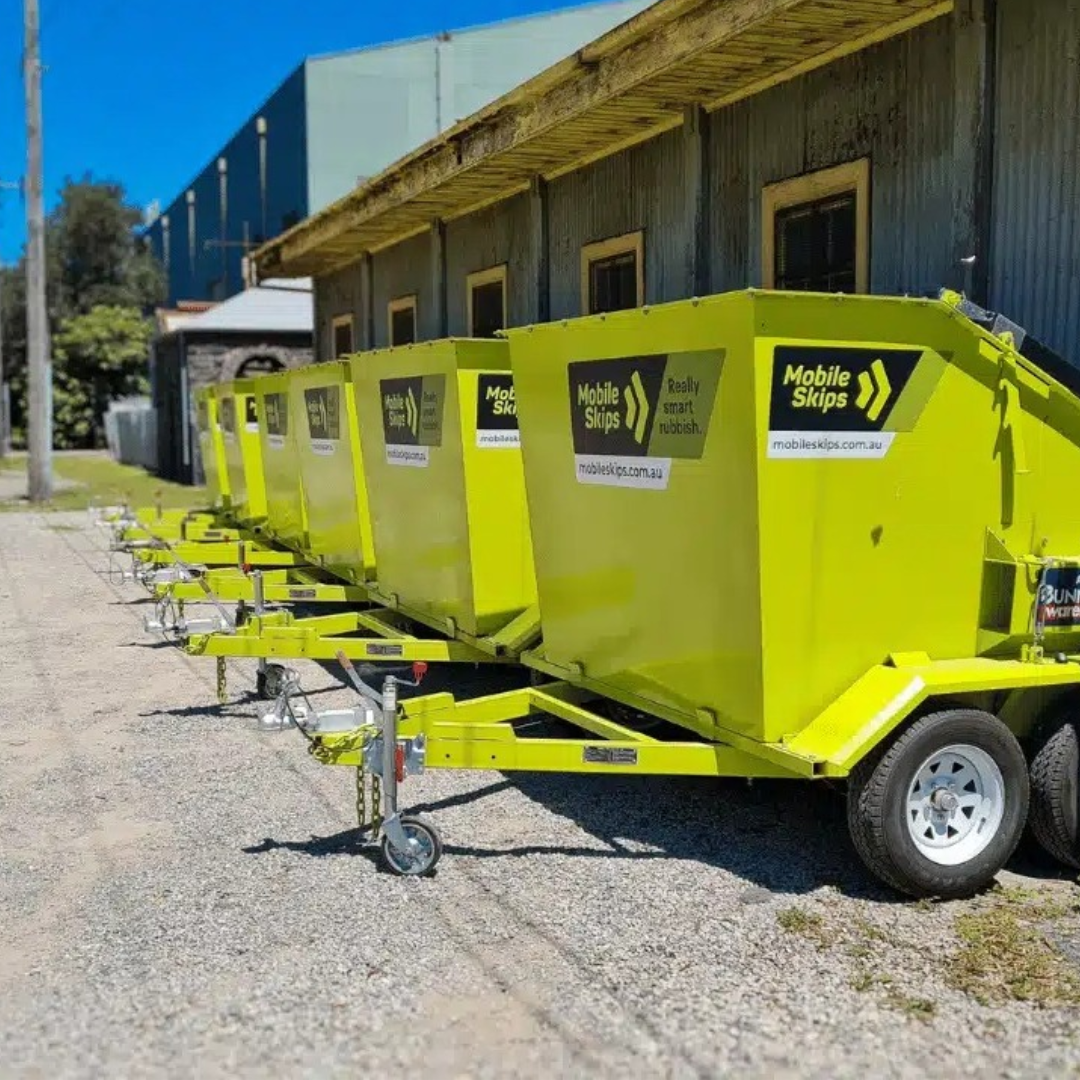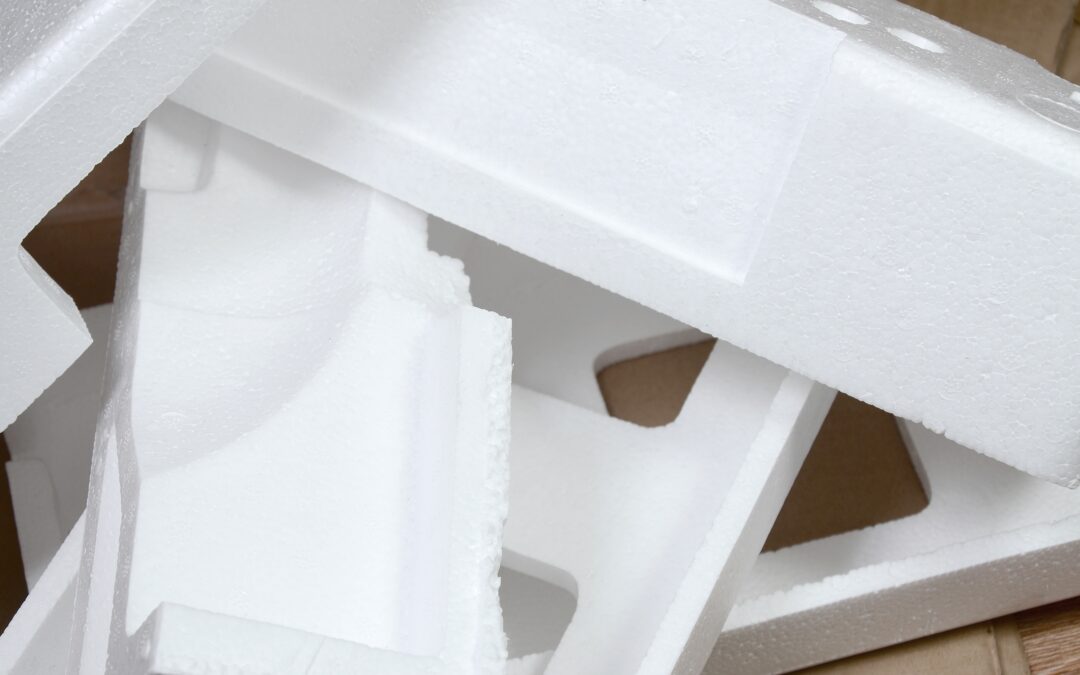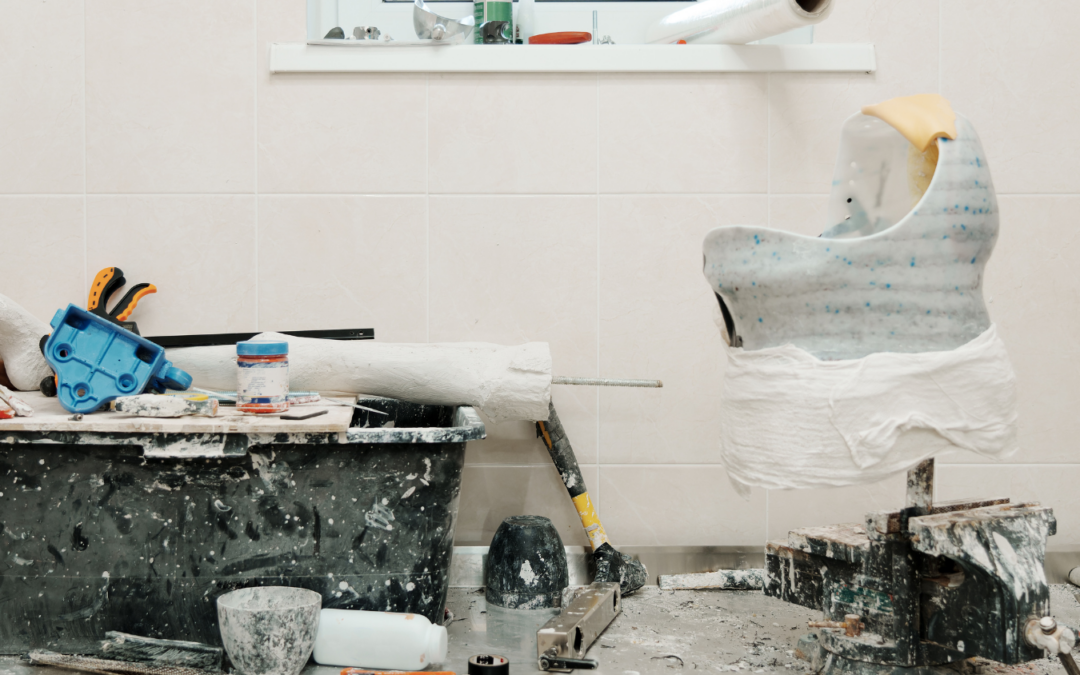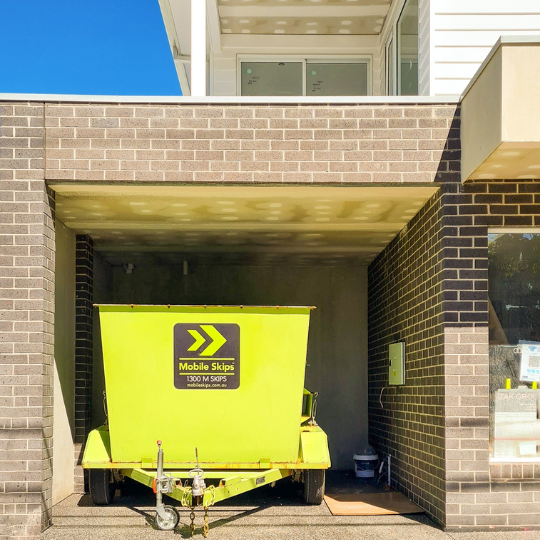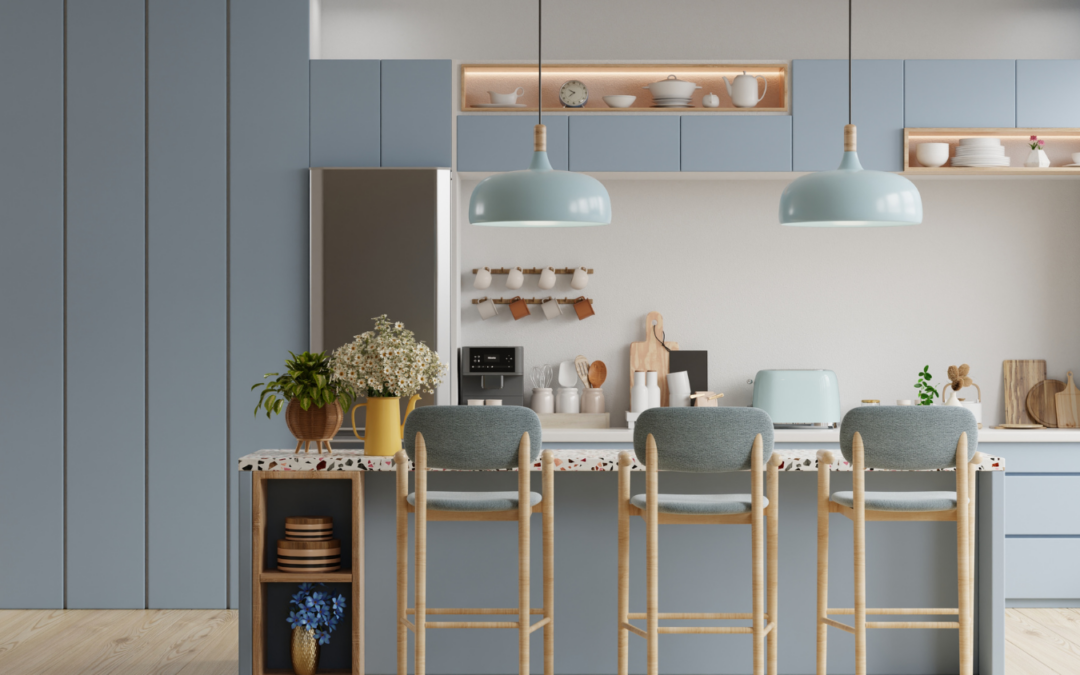Overview of Mobile Skips and Their Benefits for Renovation Waste
Mobile skips offer a practical and eco-friendly solution for managing renovation waste. These compact bins are especially suitable for residential areas and can be conveniently placed in driveways without the need for council permits. Mobile skips are versatile, making them ideal for disposing of various types of home renovation waste, including building materials, fixtures, and green waste.
A total of 19.0 million tonnes of construction and demolition (C&D) waste was generated in Australia in 2008-09. Of this total waste stream, 8.5 million tonnes was disposed to landfill while 10.5 million tonnes, or 55%, was recovered and recycled (DCCEEW). By using mobile skips, you contribute to these sustainable efforts, ensuring that a significant portion of your renovation waste is recycled responsibly.
Additionally, mobile skips are designed to handle mixed renovation waste efficiently. For example, Mobile Skips’ 4 Cubic Metre Skip Bins are perfect for most residential projects and can accommodate a variety of waste types, from bathroom renovation waste to kitchen renovation waste. This flexibility makes them an ideal choice for homeowners looking to manage their renovation debris effectively.
Choosing mobile skips not only aligns with sustainable waste removal practices but also supports eco-friendly initiatives such as responsible disposal and recycling efforts. For every skip hired, a tree is planted, contributing to carbon-neutral services and promoting environmental conservation.
Types of Home Renovation Projects and Their Waste Disposal Needs
When embarking on a home renovation project, efficient waste disposal is crucial. Different types of projects generate varying types and volumes of waste, so it’s essential to choose the right skip bin to manage your renovation waste effectively. Below, we explore small, medium-sized, and large-scale renovation projects and recommend appropriate skip bins for each.
Small Renovation Projects
Examples: Bathroom Remodels, Minor Kitchen Upgrades
Small renovation projects often include bathroom remodels and minor kitchen upgrades. These projects typically produce waste such as tiles, plasterboard, wood scraps, and old fixtures. Small amounts of this debris can be substantial, but manageable with the right solution.
Typical Waste: Tiles, Plasterboard, Wood Scraps, Old Fixtures
| Type of Waste | Quantity (Approximate) |
|---|---|
| Tiles | 100 kg |
| Plasterboard | 50 kg |
| Wood Scraps | 30 kg |
| Old Fixtures | 20 kg |
Recommended Skip: Mobile Skips’ 4 Cubic Metre Skip Bin
For small projects, the Mobile Skips’ 4 cubic metre skip bin is ideal. Its capacity is sufficient for most residential renovations, ensuring your waste is disposed of responsibly and efficiently. Learn more about managing specific types of bathroom waste here.
Medium-Sized Renovation Projects
Examples: Living Room Refurbishment, Bedroom Renovation
Medium-sized projects like living room refurbishments and bedroom renovations generate moderate amounts of waste. Typical materials include wood offcuts, flooring, furniture, and window frames. These projects require a larger capacity skip to handle mixed waste effectively.
Typical Waste: Wood Offcuts, Flooring, Furniture, Window Frames
| Type of Waste | Quantity (Approximate) |
|---|---|
| Wood Offcuts | 150 kg |
| Flooring | 100 kg |
| Furniture | 70 kg |
| Window Frames | 50 kg |
Recommended Skip: Mobile Skips’ 4 Cubic Metre Skip Bin (Ideal for Mixed Waste)
For medium-sized renovations, the Mobile Skips’ 4 cubic metre skip bin is again ideal, as it accommodates mixed waste efficiently. This bin provides adequate capacity and caters to varied renovation materials. For advice on safe waste removal, visit removing renovation waste.
Large-Scale Renovation Projects
Examples: Full Home Remodel, Extension Projects
Large-scale projects such as full home remodels or extension projects produce substantial waste, including building materials, doors, and large volumes of debris. These projects may require multiple skips or larger waste disposal solutions to manage the extensive waste generated.
Typical Waste: Building Materials, Doors, Large Volumes of Debris
| Type of Waste | Quantity (Approximate) |
|---|---|
| Building Materials | 500 kg |
| Doors | 200 kg |
| Large Volumes of Debris | 400 kg |
When Multiple Skips or Larger Solutions May Be Needed
For extensive renovations, multiple Mobile Skips’ 4 cubic metre skip bins or larger waste solutions might be necessary. These options ensure that your project remains on track and all waste is disposed of efficiently. For more information on sustainable waste removal practices, visit sustainable waste removal.
Understanding the specific waste disposal needs for your renovation project ensures that you select the right skip bin, keeping your project site clean and compliant with waste management regulations. For further information on handling waste, explore our related articles on home renovation waste, kitchen renovation waste, and bathroom renovation.
Key Factors to Consider When Choosing a Skip Bin
Volume of Waste Produced
How to Estimate the Volume of Renovation Waste
Estimating the volume of waste produced during your renovation project is critical for selecting the appropriate skip bin. Smaller projects like bathroom renovations may generate less waste than large-scale undertakings such as full home remodels.
To estimate the volume, consider the types of materials you’ll be discarding:
- Tiles and plasterboard
- Wood offcuts and flooring
- Old fixtures and furniture
Use the table below for a rough idea of waste volumes for different project sizes:
| Project Type | Estimated Waste Volume (Cubic Metres) |
|---|---|
| Small Projects (e.g., Bathroom Remodel) | 1-2 |
| Medium Projects (e.g., Living Room Refurbishment) | 3-4 |
| Large Projects (e.g., Full Home Remodel) | 4+ |
Why the 4 Cubic Metre Skip Bin is Perfect for Most Residential Projects
The 4 cubic metre skip bin is a versatile solution suitable for various types of residential projects. It comfortably accommodates mixed renovation waste, including building materials, fixtures, and more. Its size fits well in driveways and doesn’t typically require council permits (home renovation waste).
Types of Waste to be Disposed of
Can it Go in the Skip? (Building Materials, Fixtures, Green Waste)
Understanding what can go into your skip bin is essential for efficient waste management. Generally acceptable items include:
- Building materials (e.g., tiles, plasterboard)
- Old fixtures (e.g., sinks, faucets)
- Green waste (home landscaping)
For more detailed information, refer to our specific guides on kitchen renovation waste and bathroom renovation waste.
What Cannot Go in the Skip? (Hazardous Materials, Large Appliances)
Certain items are prohibited from being disposed of in skip bins, including:
- Hazardous materials (e.g., chemicals, asbestos)
- Large appliances (e.g., refrigerators, ovens)
Refer to our article on demolition waste for additional information.
Duration of the Renovation Project
Flexible Hire Periods with Mobile Skips
The hire period for your skip bin should align with the duration of your renovation project. Mobile Skips offers flexible hire periods, making it convenient for both short-term and extended projects (diy renovation projects).
Benefits of Extended Hire for Ongoing Renovations
Extended hire options provide the flexibility needed for long-term renovations, ensuring that your waste disposal needs are continuously met. This feature is especially useful for projects that evolve or experience unexpected delays (renovation clean up).
Overall, considering the volume of waste, types of materials, and the project’s duration are vital factors in choosing the right skip bin for your renovation needs. For more specialised advice, browse our articles on sustainable waste removal and removing renovation waste.
Benefits of Using Mobile Skips for Home Renovation Projects
No Council Permits Required
A significant advantage of using mobile skips for your home renovation waste is that they often do not require council permits. This simplifies the waste disposal process, allowing you to focus more on your home renovation waste without worrying about additional paperwork. Mobile skips make it easier for you to get rid of renovation debris efficiently and legally.
Compact Size: Perfect for Driveways and Residential Areas
Mobile skips are designed to be compact, making them ideal for residential areas. Their small footprint means you can place them in your driveway or other convenient locations on your property without taking up too much space. This is particularly useful in suburban areas where space can sometimes be a premium. The compact size ensures that your renovation waste is managed effectively while maintaining a clean and organized workspace.
4 Cubic Metre Bins: Ideal for Mixed Renovation Waste
For most residential projects, the 4 cubic metre skip bin is perfect. It has the ideal capacity for mixed renovation waste including building materials, fixtures, and other debris. This size allows you to manage the waste from various project scales, from small bathroom remodels to medium-sized living room refurbishments. The versatility of the 4 cubic metre bin makes it a popular choice among homeowners undertaking diy renovation projects.
| Project Type | Recommended Skip Capacity |
|---|---|
| Small Renovation Projects (e.g. bathroom remodels) | 4 cubic metre |
| Medium-Sized Projects (e.g. living room refurbishments) | 4 cubic metre |
| Large-Scale Projects | Multiple 4 cubic metre bins or larger solutions |
Eco-Friendly: Responsible Waste Disposal and Recycling
Mobile skips contribute to eco-friendly waste management by ensuring responsible disposal and recycling of renovation materials. Implementing strategies to recycle materials on-site, such as repurposing concrete or recycling old fixtures, reduces the environmental impact. This responsible approach to sustainable waste removal helps in achieving a zero-waste future in the construction industry (Hourigan Group).
1 Tree Planted for Every Skip Hired with Carbon-Neutral Services
Adding to their eco-friendly credentials, mobile skips also contribute to environmental conservation by planting one tree for every skip hired. This initiative aligns with carbon-neutral services, helping to offset the carbon footprint of renovation activities. Such environmentally conscious practices support both the community and the planet, ensuring a sustainable approach to home renovation projects.
Using mobile skips for your home renovation projects offers numerous benefits, from avoiding council permits to supporting eco-friendly waste management practices. Whether you are undertaking a small bathroom renovation or a large-scale home remodel, mobile skips provide an efficient and responsible waste disposal solution. For more specific recommendations, consider exploring our articles on kitchen renovation waste and bathroom renovation.
Conclusion
Why Mobile Skips are the Best Solution for Home Renovation Waste Disposal
Mobile Skips provide an ideal solution for managing your home renovation waste. The service allows you to dispose of a variety of renovation waste, from building materials to old fixtures, without the hassle of obtaining council permits. The compact size of the skips makes them perfect for residential areas, including driveways, ensuring that waste management is both efficient and convenient.
Their 4 cubic metre bins are particularly suited for most residential projects, allowing you to handle mixed renovation waste effectively. Additionally, Mobile Skips emphasize eco-friendly practices, including responsible waste disposal and recycling. A standout benefit is their commitment to planting a tree for every skip hired, aligning with sustainable waste removal principles.
Final Tips for Choosing the Right Skip for Your Home Renovation
- Estimate the Volume of Waste:
- Before hiring a skip, estimate the volume of waste your project will produce. Consider the 4 cubic metre skip bin as it covers most residential renovation needs.
- Identify Waste Types:
- Ensure you know what can and cannot go in the skip. For instance, common renovation waste like building materials and fixtures can be disposed of, but hazardous materials and large appliances should be avoided (reno skip bin waste).
- Assess Project Duration:
- Choose a flexible hire period that fits the timeline of your renovation project. Extended hire options are beneficial for ongoing renovations.
By taking these factors into account, you can effectively manage your renovation waste while keeping your project on track. For specific project types, check out our guides on bathroom renovation waste, kitchen renovation waste, and more.
For more information and tips on handling your renovation waste, visit our dedicated pages on removing renovation waste, renovation clean up, and builders waste.

